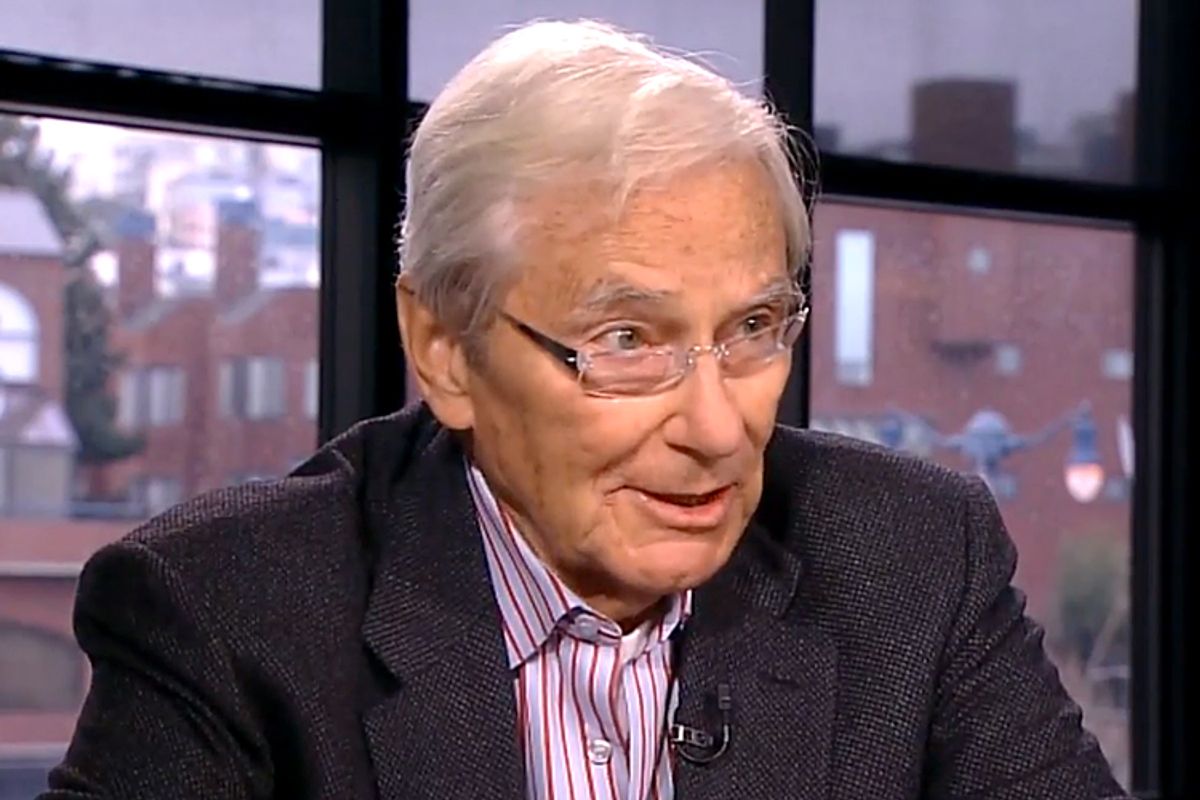Does being super-wealthy make you extra susceptible to self-pity today? That’s the only conclusion we can draw from an epidemic of self-pitying American billionaires decrying their persecution by “despots,” and the “Kristallnacht” of rising concern about income inequality, over just the last few months.
Charles Koch is the latest to fall victim to what funnier folks than me have labeled the WATB syndrome, with a whiny op-ed in the Wall Street Journal. “Collectivists” in government, Koch writes – “those who stand for government control of the means of production and how people live their lives,” i.e. Democrats -- “strive to discredit and intimidate opponents.” It gets worse: "They engage in character assassination. (I should know, as the almost daily target of their attacks.)"
I’m worried about Charles Koch. For one thing, with all his billions, he couldn’t find a better ghost writer? His silly op-ed, with its alarmist Marxist clichés and fusty Schopenhauer references, would have been dismissed as an April Fool’s joke if published just one day sooner. It came the same day as the Supreme Court's McCutcheon decision, which only increased its ridiculousness.
But Koch’s self-pity and persecution complex is downright unhealthy. He clearly suffers from the same malady as Tom Perkins, who delusionally compared rising political concern about income inequality to “Kristallnacht” for the rich. Newspaper-destroying real estate mogul Sam Zell, who cosigned Perkins, is also a victim, complaining the super-rich “are getting pummeled because it's politically convenient to do so,” when in fact “the 1 percent work harder.”
Self-pity sufferer Ken Langone of Home Depot even warned Pope Francis that Catholic billionaires might stop contributing to the church because of the pope saying the “exclusionary” culture of the rich made some of them "incapable of feeling compassion for the poor." Langone had earlier joined self-pitying mogul Leon Cooperman to admonish President Obama for "new lows in polarizing rhetoric...aimed at successful people in the business sector."
Maybe we need a public health campaign to warn billionaires about the dangers of self-pity: stress, anxiety, depression, isolation and illness. The authors of “47 Steps to Stress Management” say that “the effect of self-pity on the body is similar to chronic anxiety.” A widely quoted 2003 study of self-pity in the Journal of Personality found:
…Strong associations of self-pity with neuroticism, particularly with the depression facet. With respect to control beliefs, individuals high in self-pity showed generalized externality beliefs, seeing themselves as controlled by both chance and powerful others…Furthermore, individuals high in self-pity reported emotional loneliness and ambivalent-worrisome attachments.
Deepak Chopra says self-pity is linked to "dependency," so clearly Paul Ryan ought to consider a crusade to change the “culture” of his billionaire patrons in addition to that of “inner city” men:
The issue is dependency. Self-pity is the opposite of self-esteem. It arises because you feel no one will lift you out of your difficulties. With no one stronger, older, wiser and kinder to help you, there's a tremendous sense of lack. You cannot find the same strength that these rescuers have—or you imagine them to have—and the ache of not being enough is felt as self-pity or "poor me."
Of course, this isn’t the Koch brothers first pity-party, or their first descent into making things up about President Obama. Three years ago Charles and David sat down with the Weekly Standard and complained about their “demonization” by Democrats and President Obama, who they then went on to demonize. (A clinical note: Projection is also associated with self-pity.)
Charles accused Obama of believing “Marxist models.” David went further, blaming Obama’s views on his father, “a hard core economic socialist in Kenya,” he said. “He had sort of antibusiness, anti-free enterprise influences affecting him almost all his life. It just shows you what a person with a silver tongue can achieve.”
David also called anti-Koch protesters “very, very extreme, and I think very dangerous….That was pretty shocking, to see what we’re up against, or what the country’s up against: to have an element like this.”
So clearly self-pity is a persistent problem for Charles and his brother. Maybe we need a public health campaign: If your bout of self-pity lasts more than four hours, call your doctor. The authors of “47 Steps to Stress Management” have other advice:
“If you have trouble breaking the self-pity habit, you might want to try an excellent way of getting your mind off of yourself: help others.”
Oh well, that’s probably not the answer.
I don’t know what to advise Charles Koch about his unhealthy habits. He certainly has the money to get the best professional help available. But I would urge the Wall Street Journal, the official newspaper of record for the top 1 percent, to stop encouraging the damaging dependency and self-destructive behavior of its readers and patrons, before it’s too late.



Shares